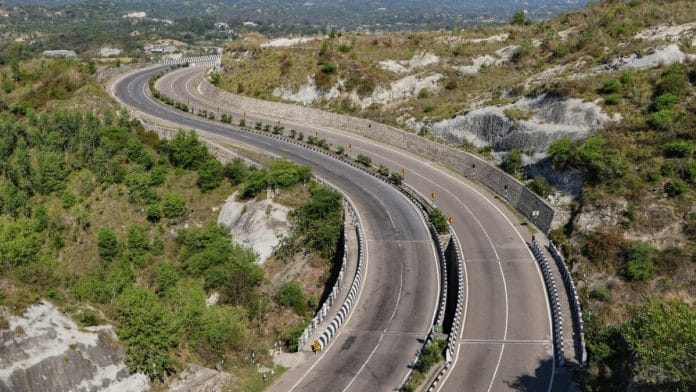Srinagar: The 148-year-old Jammu and Kashmir (J&K) tradition of moving the capital of the region twice a year — from Srinagar to Jammu during the winter and back to Jammu in the summer — has been postponed for the first time in its history. The exercise, called the Darbar Move, is being delayed in view of the lockdown due to the Covid-19 pandemic.
According to an order issued by the J&K administration Friday afternoon, the Darbar will open in Srinagar on 15 June as opposed to its scheduled opening in the first week of May.
“It has been observed that the formal opening of the Darbar on 04.05.2020, as ordered vide government order no. 464-JK (GAD) of 2020 dated 10/04/2020, may affect the Covid-19 control efforts in the Union Territory,” read the order issued by the General Administration Department of J&K government.
The order further reads, “The formal opening of the Darbar at Srinagar will take place on 15.06.2020. All officers assigned specific Covid-19 control tasks shall continue to function from their present location till further orders, so as to ensure Covid-19 control effects and not hampers on account of physical dislocation of officers.”
It added that the Civil Secretariat at Srinagar shall start functioning on 4 May with the staff and officers on an “as is where is” basis, i.e., staff will continue working where they are based.
J&K has so far recorded 314 cases of infection, including 276 active cases. Of these, 54 are in Jammu and 260 in Kashmir. Five patients have died while 38 patients have recovered.
Also read: J&K’s 77 ‘red zones’ under increased Covid-19 surveillance, real-time tracking on
Change in capital
The practice of ‘Darbar Move’ was started by Maharaja Gulab Singh in 1872 to escape the extreme weather conditions in the two regions. When the capital shifts, so does the civil secretariat, important subsidiary offices, files and government documents, and the assembly.
Official documents and other equipment are packed in hundreds of bundles, cartons and metallic trunks, and loaded into more than 200 trucks to transport them for the over 300 km distance between Jammu and Srinagar.
Last week the administration ordered the Move offices to reopen in Srinagar on 4 May, but also kept the civil secretariat in Jammu functional.
It also ordered that only employees of the Kashmir Division, who are required to move to Srinagar on account of the Darbar Move, would be transported while employees of the Jammu division will work on an ‘as is where is’ basis.
The move had drawn criticism, with many questioning the government’s decision to undertake the mass shifting during the pandemic. Since last week’s order did not specify a date on which the civil secretariat would become operational in Srinagar, several also saw it as a move to shift the capital of the union territory to Jammu permanently.
Subsequently, a petition was filed in the J&K High Court seeking a judicial intervention in the matter. The court sought details of the last four Darbar Moves, including security arrangements and the expenditure. The expense incurred would include transportation and accommodation of government employees as well financial benefits given to employees such as move allowance.
The court sought the details in order for “a considered view to be taken”, such as impact on the necessary resources and the personnel involved (positions and number).
Also read: The male, female and pollen behind J&K order to chop ‘Covid-19’ trees







To my understanding, the beggers and similar weaker and vulnerable sections of the society survived long Covid -19 lock downs due to the timely intervention of the center and state governments as well as benevolent agencies, public and NGOs. They were provided with two meals, food and even grains and were lodged in camps under adequate healthcare. However, the situation is becoming more and more challenging with the spreading of virus on a day to day basis. Unless normalcy returns soon, I am afraid, many would slip away.